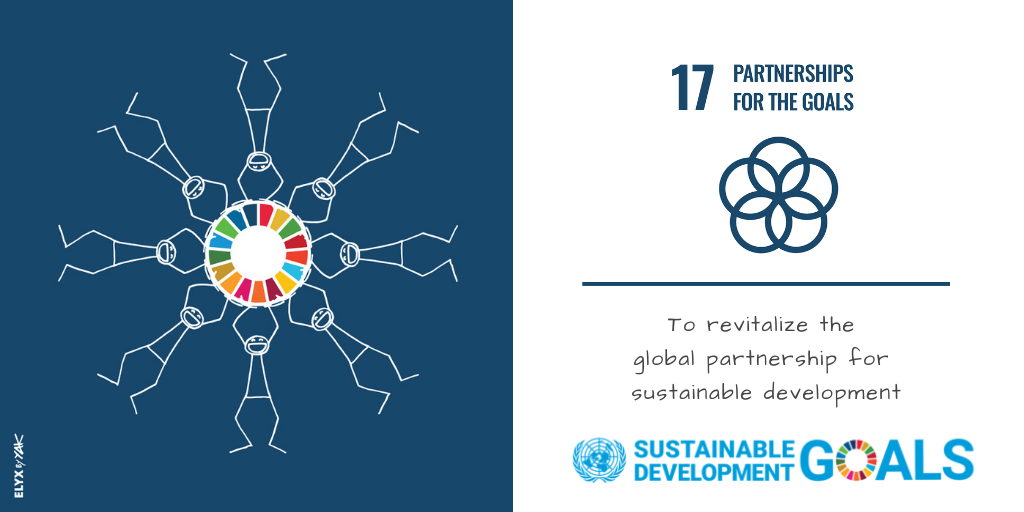-
Fabrics & Design
-
Supply & Sampling
-
Webshop
-
About Tootal

The 17 UN sustainable development goals (SDGs) apply to all countries. They set the priorities and agenda for governments and nations to tackle challenges with an emphasis on good growth that delivers social and environmental value, as well as optimal economic benefit.
17 goals are set to be delivered by 2030.
We talk about challenges such as demographic and social change, shifts in global economic power, urbanisation, climate change, resource scarcity, inequality and technological breakthroughs; they all demand a collective, international response.
The Millennium Development Goals (MDGs) focused on issues particularly affecting developing countries. The SDGs however are much broader and its framework is applicable to the developed world equally. The SDG framework includes goals addressing industry, innovation and infrastructure, responsible consumption and production, climate action as well as refreshed goals targeting poverty, hunger, health and well-being.
The 17 SDGs and the 169 targets that underpin them, provide a blueprint for good growth at national level, but also provide insights for companies on how they can create economic, social and environmental value for their investors, customers and other stakeholders. Analysing a company’s alignment with the Global Goals will give a view on how business activities help or hinder governments from achieving their goals or even take them in the wrong direction.
What is the Decade of Action?
In 2020, the UN called for the Decade of Action to accelerate sustainable solutions to the world’s biggest challenges since the 17 UN sustainable development goals (SDGs) are not progressing at the scale or speed required.
All sectors of society are called to mobilize for a decade of action on three levels:
The Decade of Action must mobilize everyone everywhere, demand urgency and ambition and supercharge ideas to solutions. Any business, alongside government, has a key role in driving the ability for a society to thrive.
Tootal Fabrics (Tootal) B.V. is making and implementing decisions already that hopefully will have a real impact on society and the environment, for the better, across the short and long term.
Our company tries to understand what the impact of all of her operational building blocks is, both positive and negative, and reviews processes, products, procurement, packaging, distribution, etc. With that, Tootal Fabrics (Holland) B.V. tries to define and drive own strategies with lasting impacts, for the Dutch government to achieve the Global Goals, eradicate negative and improve positive impacts.
Since business profits from solving social problems and because consumers are happy for a business to increase profits at the same time as generating economic and social benefits, we see our global presence and reach in the textile world as a great way to make a positive contribution.
An engagement approach hopefully will help Tootal Fabrics (Tootal) B.V. amplify the contribution to meeting one or more of the SDGs. Hopefully by engaging our supply chain and customers, momentum builds quickly in tandem with the opportunity to drive real change.
How does Tootal Fabrics (Holland) B.V. go forward?
On the following pages you can read about our intentions and work per each global goal.
Sustainability reporting will be implemented future-wise.
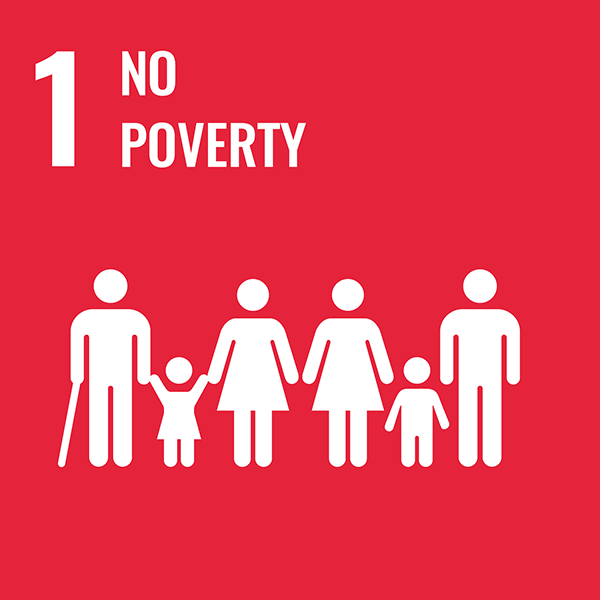 Tootal Fabrics (Holland) B.V. pays her staff in The Netherlands -where she is headquartered- fair wage and all its international sales agents are paid a fair commission.
Tootal Fabrics (Holland) B.V. pays her staff in The Netherlands -where she is headquartered- fair wage and all its international sales agents are paid a fair commission.
Tootal Fabrics (Holland) B.V. requires all suppliers and contractors to do the same; they must as a minimum respect the local minimum standards on pay. No any party Tootal Fabrics (Holland) B.V. works with is allowed to pay its staff below living wage.
We animate our whole supply chain to pay higher wages, so that it may lead to increased productivity and a lifting of people out of poverty. Tootal Fabrics (Holland) B.V. doesn’t track pay rates against productivity, but tries to identify and address any potential risks relating to low pay in operations in the supply chain.
Though we don’t do at our headquarters, some suppliers of Tootal Fabrics (Holland) B.V. participate in refugee integration programs and include them in the value chain as employees. Some customers of Tootal Fabrics (Holland) B.V. employ disabled people to give them employment and prospects. With all of these partners Tootal Fabrics (Holland) B.V. works with care.
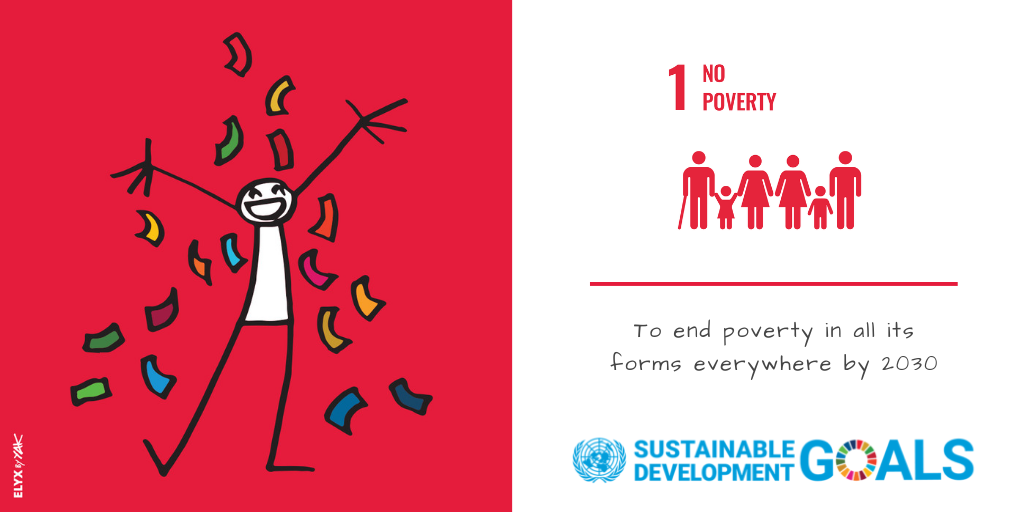
Goal 2 – Zero hunger: we experience tighter world food markets, but there is still enough food available. Many people are just too poor to afford it and that is why broad-based income growth is essential.
Goal 3 – Good health and well-being: poverty increases the chances of suffering from poor health by limiting, for example, the ability to access health services or treatments. Poor health can also stop people and their carers accessing work or education, trapping them in poverty.
Goal 5 – Gender equality: women with equal rights are better educated, healthier and have greater access to land, jobs and financial resources. Their increased earning power in turn raises household incomes. Where women have greater involvement in household decision-making, children go on to have better prospects and higher well-being. This reduces poverty in future generations.
Goal 8 – Decent work and economic growth: job creation and improving employment for all helps address one of the key causes of global poverty; the lack of work. For Tootal Fabrics (Holland) B.V. the biggest impact on poverty will be through creating decent work and economic growth in the supply chain.
Goal 13 – Climate action: the poor are particularly vulnerable to climate change. Building resilience of communities to climate related hazards and natural disasters contributes to the achievement of target SDG 13.1 which is focused on resilience and adaptation at the country level.
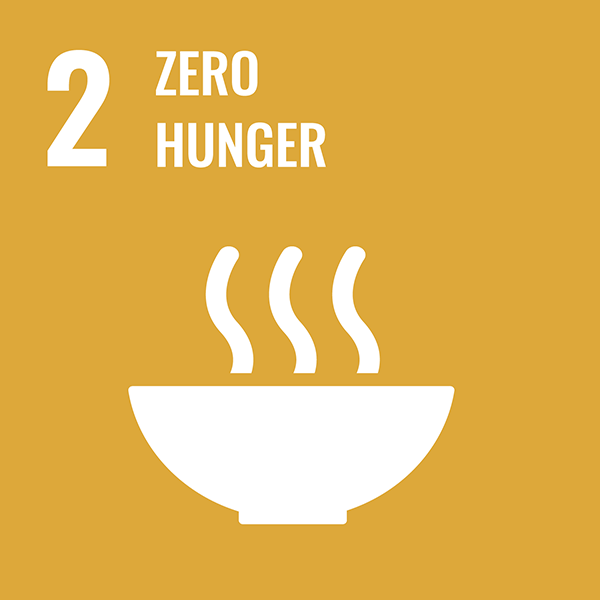 Achieving ‘zero hunger’ is primarily a relevant goal for companies in the food and drink production, transport, processing or retail business who must improve their supply chain resilience and the resilience and adaptive capacity of the agricultural communities they source from.
Achieving ‘zero hunger’ is primarily a relevant goal for companies in the food and drink production, transport, processing or retail business who must improve their supply chain resilience and the resilience and adaptive capacity of the agricultural communities they source from.
Tootal Fabrics (Holland) B.V. operates in different business fields. However, by letting our supply chain source cotton from good global cotton fields (Australia, United States of America), no pay below living wage is knowingly being contributed to and hopefully no agricultural land is being replaced by cotton fields.
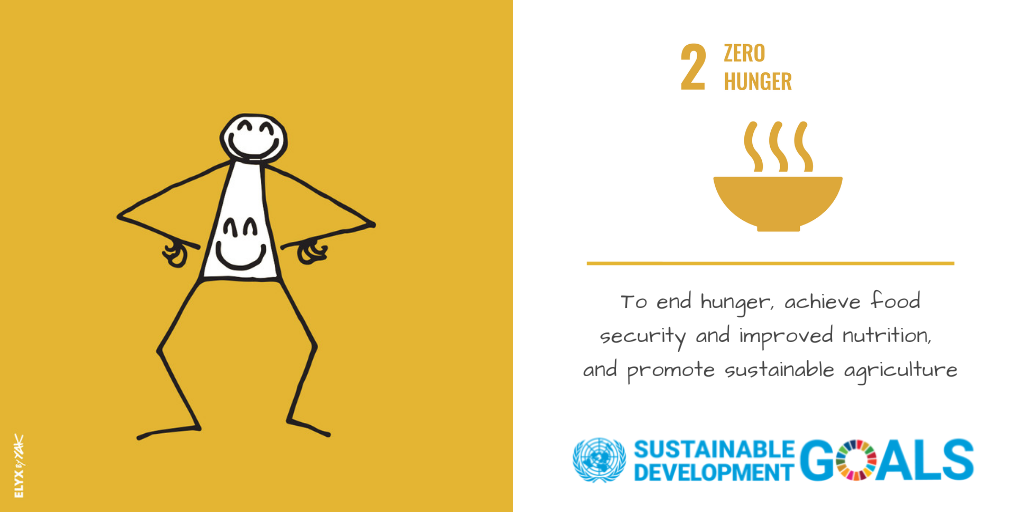
Goal 1 – No poverty: we experience tighter world food markets, but there is still enough food available. Many people are just too poor to afford it and that is why broad-based income growth is essential.
Goal 3 – Good health and well-being: malnutrition is one of the main contributors to high child and maternal mortality rates in developing countries.
Goal 6 – Clean water and sanitation: agriculture is the single largest user of freshwater resources, using a global average of 70% of all surface water supplies. But, agriculture both causes water pollution through, for example, discharge of pollutants and sediment to surface and/or groundwater and is a victim through use of wastewater and polluted surface and groundwater which contaminate crops and transmit disease to consumers and farm workers.
Goal 10 – Reduced inequalities: improving the productivity and incomes of small-scale producers, typically poorer members of society, will help reduce inequalities within and among countries.
Goal 13 – Climate action: the livestock sector accounts for 15 percent of global emissions, equivalent to exhaust emissions from all the vehicles in the world. Shifting to a pattern of eating less meat could help us combat climate change, as well as enable us to produce more food overall.
Goal 15 – Life on land: restoring soil quality and promoting the sustainable use of ecosystems are key to feeding our growing world population
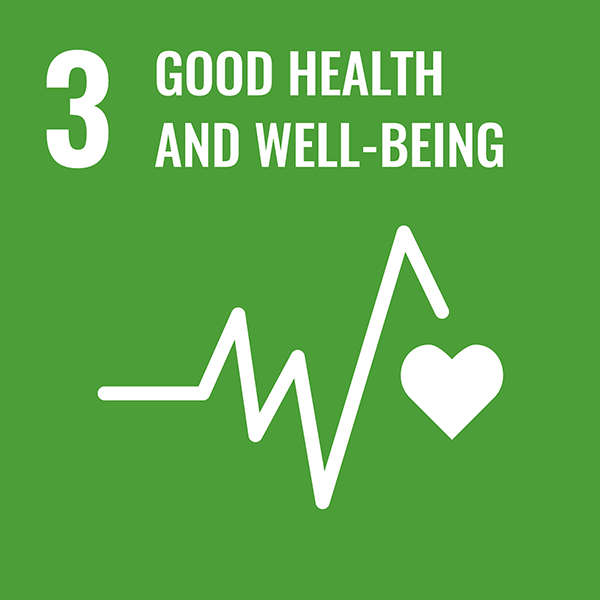 A healthy business depends on healthy, productive workers and thriving consumers.
A healthy business depends on healthy, productive workers and thriving consumers.
Tootal Fabrics (Holland) B.V. employs many who commute by bicycle every day and offers a safe bicycle parking place as well as charging stations for electric bicycles. All office desks are double-duty desks for sitting and standing while working and employees going outside for a walk during lunch break or relax in the new sitting area outside is welcomed.
Tootal Fabrics (Holland) B.V. provides various fresh fruits from local smallholders to all of its employees free of charge, every day throughout the whole year. Two small kitchens and a canteen are accessible for employees during each working day.
Tootal Fabrics (Holland) B.V. tries to animate her employees to adopt and sustain healthy behaviours to prevent NCDs (noncommunicable diseases) and support good mental health. Lifestyle health risk factors such as physical inactivity, unhealthy diets and smoking are not promoted. Costs resulting from people living long-term with NCDs fortunately are not very high for Tootal Fabrics (Holland) B.V. and no big decreased workforce productivity or loss of talent is faced. Trained emergency medical aid employees are in present, as well as an Automatic External Defibrillator (AED), in case of emergency.
Tootal Fabrics (Holland) B.V. offers flexible daily working times for the office employees and requests all employees to take accrued vacation days annually and to not postpone.
Tootal Fabrics (Holland) B.V. operates a fresh air filter and circulation installation in office spaces. During the pandemic several ViroPower machines with HEPA and dust filters and UVC light for destroying most of the viruses and bacteria were installed and these machines will stay. Testing kits to conduct self-tests on Covid-19 are available at working site and Tootal Fabrics (Holland) B.V. has an agreement with Medlon/Unilabs for taking action fast in case of an infection at the company. Company regulations are in place and enforced.
For years already, the warehouse is equipped with a conveyor belt to unload incoming truck with. For rolls and pallets vacuum lifting machines and fork lift trucks are used. In addition, the warehouse is equipped with installations for pushing down warmed up air which contributes to the health of employees.
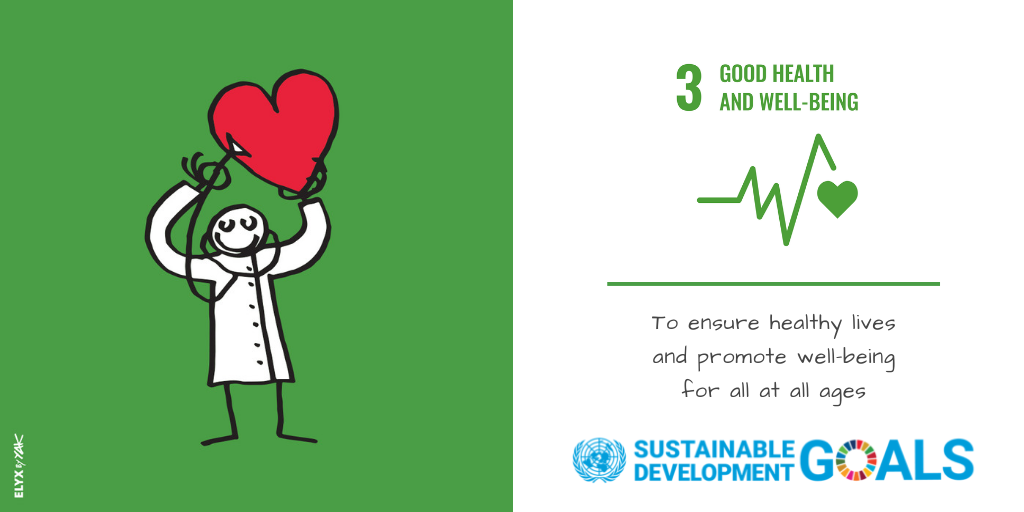
Goal 2 – Zero hunger: there are about 800 million undernourished people in the world getting not enough food to be healthy and lead an active life.
Goal 6 – Clean water and sanitation: safe/sufficient drinking water, along with adequate sanitation and hygiene reduce child mortality, improve maternal health and combat infectious diseases.
Goal 8 – Decent work and economic growth: there is strong evidence showing that work is good for physical and mental health and well-being, while worklessness is associated with poorer physical and mental health and well-being.
Goal 10 – Reduced inequalities: increasing evidence indicates that poor health outcomes on indicators ranging from life expectancy to infant mortality and obesity can all be linked to economic inequality.
Goal 11 – Sustainable cities and communities: in wealthy and poor cities alike, unsustainable and unplanned development of urban housing, transport and food systems can lead to air pollution, poor diet and physical inactivity which are drivers in the epidemic of NCDs.
Goal 13 – Climate action: climate change affects the social and environmental determinants of health such as clean air, safe drinking water, sufficient food and secure shelter.
Goal 15 – Life on land: biodiversity underpins the ecosystems which we depend on for food and fresh water, aids in regulating climate, floods and disease and provides recreational benefits and aesthetic and spiritual enrichment, all supporting good mental wellbeing.
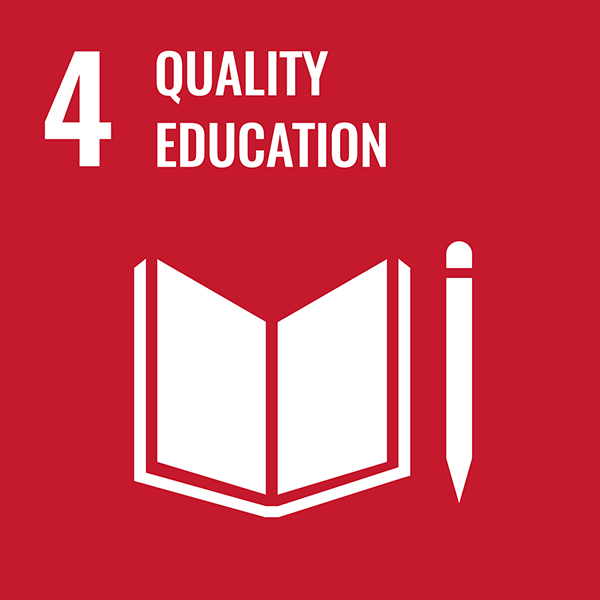 Business communities view education as a top global development priority since education is fundamental to the development of future workforces; it supports higher levels of productivity, adaptability and innovation.
Business communities view education as a top global development priority since education is fundamental to the development of future workforces; it supports higher levels of productivity, adaptability and innovation.
Skill gaps between countries in our industry is prominent and affecting the value chain and unrealised potential can’t be improved easily. By keeping an eye on risks in our supply chain such as poverty, poor health and safety standards, for example by conducting social audits, Tootal Fabrics (Holland) B.V. tries to support the development of education and skills.
We actively request our suppliers to deliver this goal.
Tootal Fabrics (Holland) B.V. offers courses to its employees for improving team as well as individual skill set level.
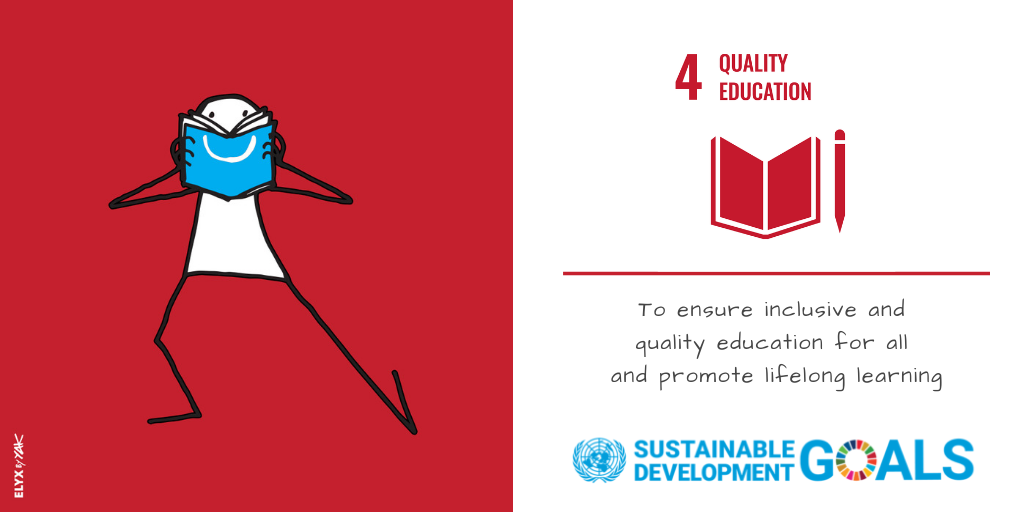
Goal 3 – Good health and well-being: behaviour-change based education programmes are effective in addressing the risks associated with both infectious and non-communicable diseases.
Goal 5 – Gender equality: accessing education helps women access employment and incomes, helping them achieve greater economic equality. Education also empowers women to take a more active role in society.
Goal 8 – Decent work and economic growth: education and skills development equip people for productive and sustained employment and entrepreneurship. Employment and entrepreneurship are, in turn, core drivers of economic growth.
Goal 12 – Responsible consumption and production: education has an important role to play in making people aware of how to live more sustainable lifestyles, including reducing the waste they produce.
Goal 13 – Climate action: education, awareness-raising and capacity-building is needed on a human and institutional level to help us mitigate and adapt to climate change. Goal 16 – Peace, justice and strong institutions: education is a strong driver of social development in post-conflict settings.
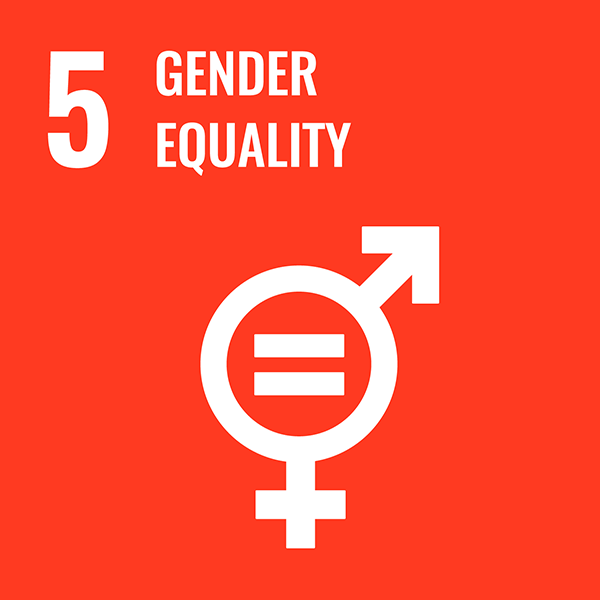 Not in the last place since promoting gender diversity and equality is key to retaining skilled talent, Tootal Fabrics (Holland) B.V. staff consists of about 50% women.
Not in the last place since promoting gender diversity and equality is key to retaining skilled talent, Tootal Fabrics (Holland) B.V. staff consists of about 50% women.
Tootal Fabrics (Holland) B.V. offers a ‘well-paid’ maternity leave and welcomes women to re-start in their usual job. Both maternity as well as paternity policies are implemented where men can take on care and domestic work in their families. Childcare support Tootal Fabrics (Holland) B.V. doesn’t offer, but if not possible otherwise taking a child to work occasionally is possible. The Netherlands offers available space for childcare on good level.
Tootal Fabrics (Holland) B.V. employs part-time workers and offers flexible working hours for office staff. The latter is being used and taken advantage of by many employees.
Direct and indirect discrimination, for example sexist microaggressions and/or unconscious bias in the workplace, is not accepted nor tolerated.
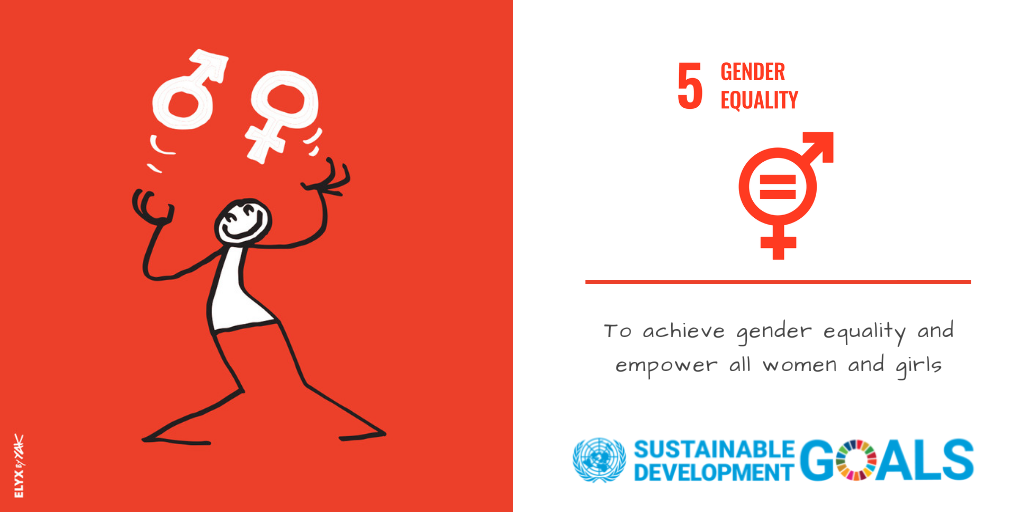
Goal 1 – No poverty: women comprise 60% of the working poor globally.
Goal 3 – Good health and well-being: more women and girls die younger in developing countries than boys and men. Gendered impacts include maternal health. Evidence shows that economic empowerment of women has significant positive impacts on family health.
Goal 4 – Quality education: unequal access, especially once girls reach puberty.
Goal 6 – Clean water and sanitation: inadequate sanitation contributes to women’s health issues and violence against women and girls. Women and girls bear a disproportionate burden of fetching water where there is no pumped water.
Goal 10 – Reduced inequalities: gender inequalities are pervasive in every country in the world.
Goal 16 – Peace, justice and strong institutions: inclusive governance should take into account the needs of women and include women as decision makers.
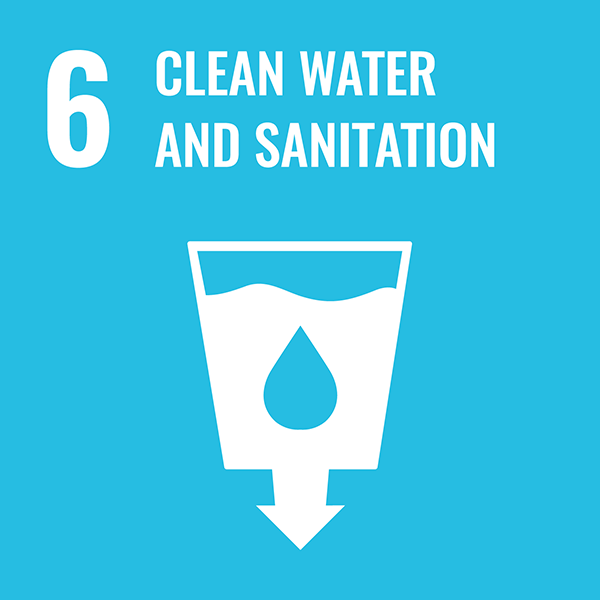 Worldwide, agriculture accounts for 70% of all water consumption, compared to 20% for industry and 10% for domestic use. In industrialised nations however, industries consume more than half of the water available for human use. Companies in the food, beverage and manufacturing sectors have therefore a particularly important role to play in managing its use, often referred to as water stewardship.
Worldwide, agriculture accounts for 70% of all water consumption, compared to 20% for industry and 10% for domestic use. In industrialised nations however, industries consume more than half of the water available for human use. Companies in the food, beverage and manufacturing sectors have therefore a particularly important role to play in managing its use, often referred to as water stewardship.
Tootal Fabrics (Holland) B.V. will set it as a future goal to check the water footprint of its supply chain activities and to increase engagement and best usage in the supply chain in order to deliver on water efficiency goals.
Tootal Fabrics (Holland) B.V. has clean water and good sanitation with daily cleaning of office spaces and restrooms as well as a hygienic hand wash facilities and clean desk policy. All restrooms are equipped with water saving buttons.
Tootal Fabrics (Holland) B.V. expects clean water and good sanitation to be offered by partners in its supply chain as well. Social audits help to address this, which should result in stakeholders benefitting from the healthier employees. Our supply chain policy requires suppliers to provide potable water and clean toilet facilities.
Tootal Fabrics (Holland) B.V. encourages employees to hygienic behaviours, especially also during the pandemic, and also offers disinfectants.
The extensive fabric collection of Tootal Fabrics (Holland) B.V. includes rotary prints as well as digital prints. Since printing fabrics digitally is more sustainable because of the up to 50% lesser water consumption, the digital collections are being continuously invested in and globally promoted. Also made-to-order programs with EU-production partners help to reduce excessive production and thus industrial water use.
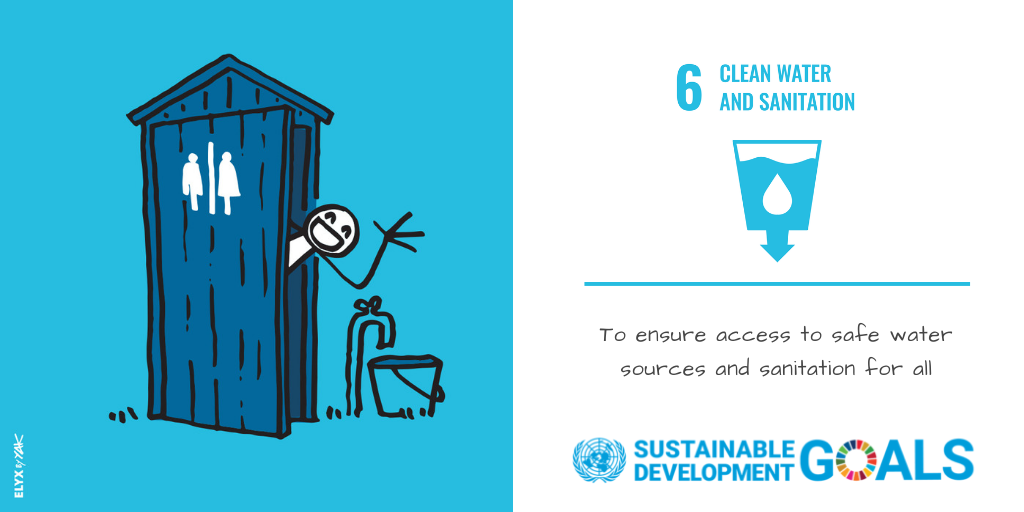
Goal 3 – Good health and well-being: water and sanitation are closely linked to health, given waterborne diseases and the critical role of WASH in reducing maternal and child mortality.
Goal 4 – Quality education: many schools do not have drinking water or secure, private, single sex toilets. The latter means that many girls are kept at home by their parents or drop out once they reach puberty. Where households are not within close proximity of a water source, children (particularly girls) are often required to fetch water for many hours each day rather than attending school.
Goal 5 – Gender equality: inadequate sanitation contributes to women’s health issues and violence against women and girls. Women and girls bear a disproportionate burden of fetching water where there is no pumped water.
Goal 11 – Sustainable cities and communities: access to WASH facilities is a great challenge in informal settlements in many rapidly growing cities globally. Cities do not necessarily provide better access to adequate facilities than more remote areas.
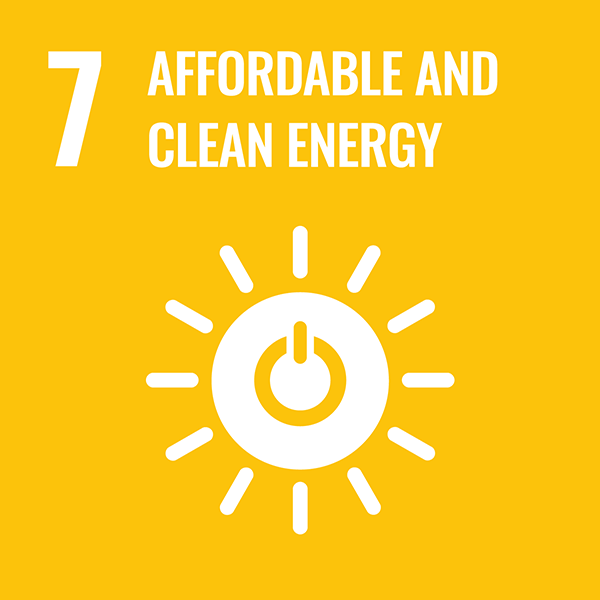 Tootal Fabrics (Holland) B.V. is actively managing its own energy usage. A great part of this is met by renewable sources to manage carbon costs and to take advantage as they become more cost-competitive.
Tootal Fabrics (Holland) B.V. is actively managing its own energy usage. A great part of this is met by renewable sources to manage carbon costs and to take advantage as they become more cost-competitive.
The share of our energy demand currently met by renewable energy is: 18.9% (wind), 2.2% (sun), 14.5% (water), 64.4% (biomass) and 0% other. All green electricity comes from The Netherlands.
With sourcing 100% of renewable energy, the consequences for the environment is CO2 0%.
The headquarters of Tootal Fabrics (Holland) B.V. uses a sustainable heating system called district heating from a centralised heat source where the heat source is present in the companies area. With such a heating system CO2 emissions are being reduced by 50 to 70 percent. By implementing renewable energy sources and utilizing waste heat generated by industry, the environmental gain by district heating is further evident.
In addition to the above, the warehouse is equipped with installations for pushing down warmed up air. The thermostat is placed relatively low. Not only does this contribute to the health of employees, it also results in energy savings.
The headquarters’ warehouse and offices are equipped with LED (Light Emitting Diodes) which still is an existing technological advance in the lighting industry because of its advantages: long life and endurance, energy efficient (and less heat transfer) and ecologic (it does not contain toxic materials), high quality illumination. Clearly, a LED lightning system is a more expensive investment but because of the longer lifespan, the dimming system and the lesser energy consumption, it pays off.
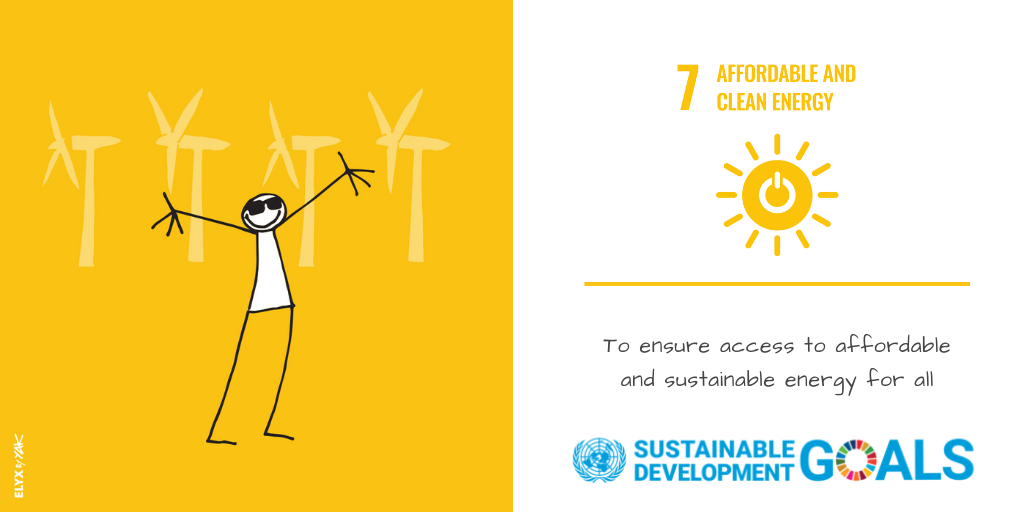
Goal 1 – No poverty: energy poverty means that poor people are the least likely to have access to a source of power, while it is more likely that they will remain poor as long as they are not connected.
Goal 10 – Reduced inequalities: energy access is not uniform around the world, nor is it uniform within nations. This goal aims to empower and promote the social, economic and political inclusion of all by 2030, which includes addressing lack of access to energy by the poorest.
Goal 12 – Responsible consumption and production: the need for energy consumption to become more efficient links to the broader need for resource efficiency in consumption and production and to decouple economic growth from environmental degradation.
Goal 13 – Climate action: the challenges of climate and energy are inexorably connected: to address the increase in global temperature, we must de-link energy use from emissions by decarbonising our power sources, i.e. reducing emissions from energy.
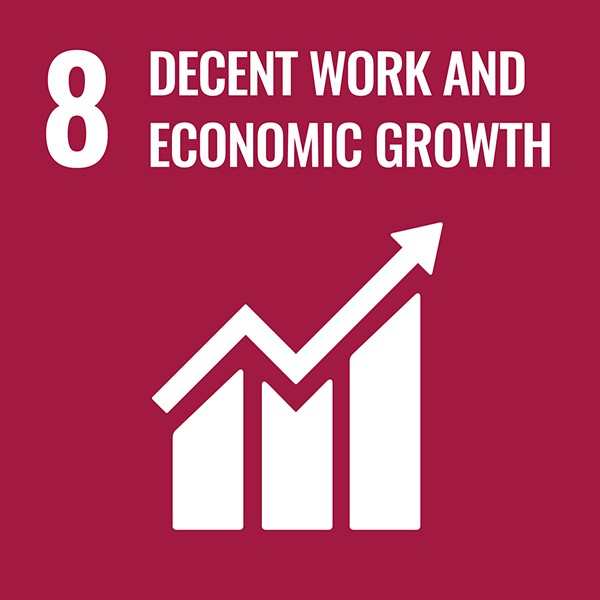 Creating decent jobs is one of the fundamental ways in which business supports economic growth and sustainable development.
Creating decent jobs is one of the fundamental ways in which business supports economic growth and sustainable development.
Protecting human rights in the direct operations and supply chain are essential for maintaining the good reputation Tootal Fabrics (Holland) B.V. has. The policy is to conduct social factory audits in the supply chain for addressing forced labour, modern slavery, human trafficking and child labour. Human rights considerations are integrated into our supplier and third party due diligence practices.
Furthermore, Tootal Fabrics (Holland) B.V. partners with Kinderhulp.nl.
Workplace injuries and work-related disease in direct operations isn’t costing Tootal Fabrics (Holland) B.V. a lot in terms of lost productivity, talent and reputation. In the supply base, social factory audits should help to reduce workplace accidents and to support the suppliers to improve health and safety performance.
Since a company’s licence to operate or the ability to win (large) public sector contracts in developed and developing countries alike is increasingly influenced by its ability to demonstrate the economic value it generates for the local and/or national economy to governments, Tootal Fabrics (Holland) B.V. sources and stocks products on large volumes and offers e.g. fabrics for global corporate identity projects at low and competitive prices.
With the latter, assumingly thousands of jobs can be maintained indirect via the supply chain.
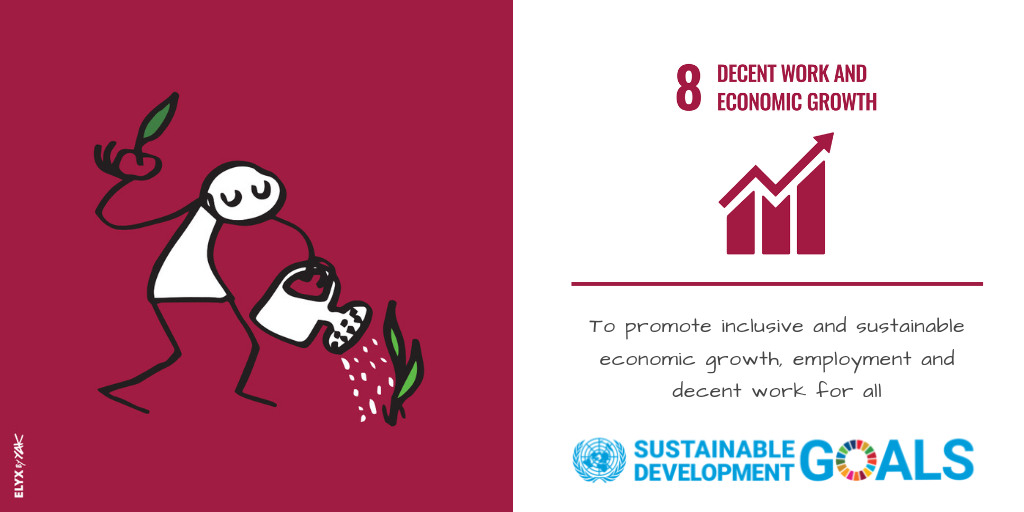
Goal 1 – No poverty: decent, fairly paid, secure employment lifts people out of poverty. For many companies, their biggest impact on poverty will be through creating decent work and economic growth.
Goal 2 – Zero hunger: supporting the productivity of small scale food producers will be a significant contributor to maintaining employment and incomes in many developing countries.
Goal 4 – Quality education: education and skills development equip people for productive and sustained employment and entrepreneurship.
Goal 10 - Reduced inequalities: by supporting equal opportunities in employment, in terms of recruitment, pay and promotion, business has a strong contribution to make to reducing inequality.
Goal 14 – Life below water: the sustainable use of marine resources for fisheries, aquaculture and tourism will be an important driver of job creation for small island developing states and least developed countries.
Goal 16 – Peace, justice and strong institutions: unemployment, in particular youth unemployment, is strongly associated with political instability. In post-conflict situations, employment and income generation are vital to short-term stability, reintegration, socio-economic growth and sustainable peace.
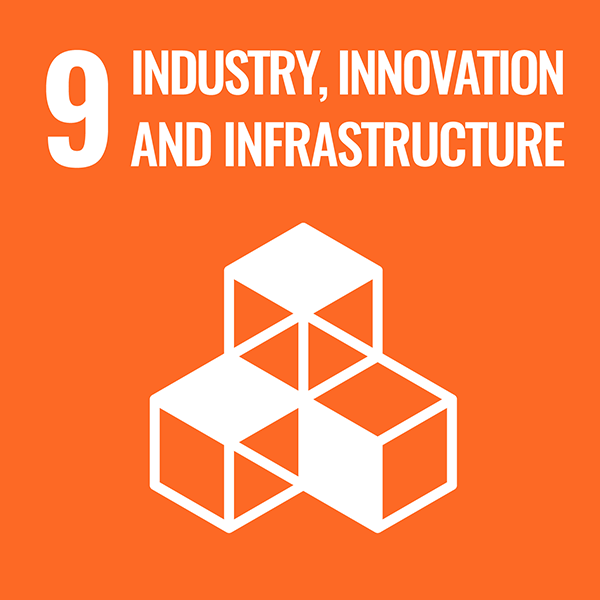 Adequate and resilient infrastructure underpins future economic growth and is the means by which people access the resources they need for a high quality of life. While infrastructure has often been seen as the responsibility of governments, intensifying pressures such as population growth and climate impacts mean there are growing opportunities for business to apply its resources and expertise in this space.
Adequate and resilient infrastructure underpins future economic growth and is the means by which people access the resources they need for a high quality of life. While infrastructure has often been seen as the responsibility of governments, intensifying pressures such as population growth and climate impacts mean there are growing opportunities for business to apply its resources and expertise in this space.
Where services are inefficient and unreliable, this can be a cost to business and wider economic growth. Tootal Fabrics (Holland) B.V. partners with all well-known global parcel service companies for efficient and fast distribution of parcels and small bulk shipments and works with professional forwarders for effective transportation of bulk shipments by road, rail, sea, river and air. It is the company’s goal to continuously ensure usage of resource efficient, resilient and sustainable transport.
Waiting times at our headquarters for trucks are being minimized by e.g. the warehouse upgrade of unloading the goods with the help of a conveyor belt. The highway can be reached within 5-10 minutes.
In addition to travelling to customers and stakeholders globally, conference calls and online meetings take place to successfully keep daily contact with the markets Tootal Fabrics (Holland) B.V. operates in. Products based on disruptive technologies with which innovative companies successfully transformed sectors are thus being used. In short, various communication channels are actively used.
Since 2020, Tootal Fabrics (Holland) B.V. has a brand-new efficient ERP system in place to which the existing and continuously updated web shop (with extensive collections and an online ordering system) is linked. Herewith, Tootal Fabrics (Holland) B.V.’s goal to (out-)perform in its business field and stay competitive in an increasingly digital marketplace is being maintained.
In 2021 Tootal Fabrics (Holland) B.V. invested in e.g. a digital colour production printer offering a total package; reduced labour intensive set-up, minimized wasted output and repeatable results. Collection cards, booklets and brochures are produced on site based on needs and Tootal Fabrics (Holland) B.V. doesn’t depend on outsourcing anymore.
All what is being invested in by Tootal Fabrics (Holland) B.V. is very unlikely to become a stranded asset.
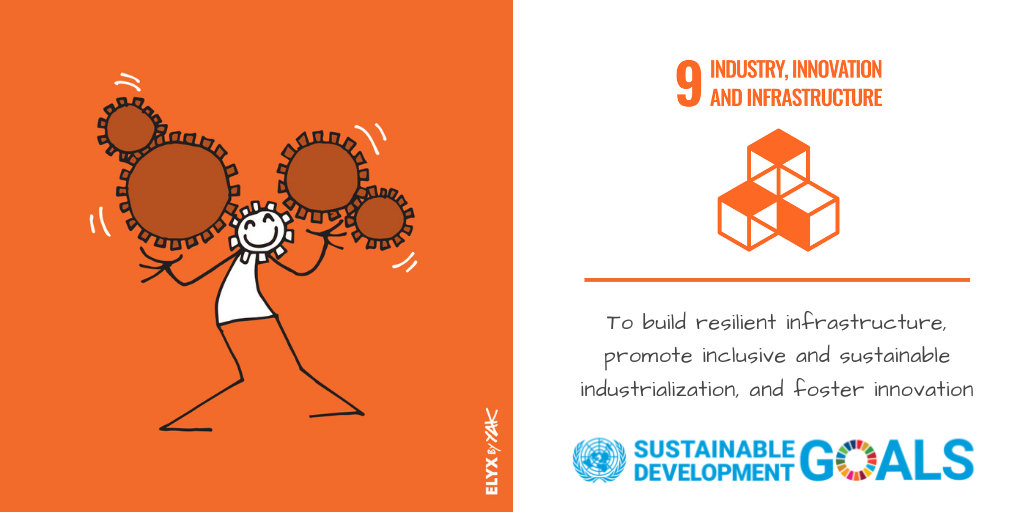
Goal 6 – Clean water and sanitation: physical infrastructure is a necessary precursor to effective water and sanitation. The challenge which infrastructure has to meet is more pronounced in remote, water-pressured or very densely populated areas.
Goal 7 – Affordable and clean energy: access to energy is as much an issue of infrastructure as it is production; grids and other infrastructure facilitate the distribution of produced energy.
Goal 11 – Sustainable cities and communities: well-designed and efficient infrastructure is integral to the functioning of cities and urban areas.
Goal 13 – Climate action: climate impacts (such as extreme weather events) place physical infrastructure at risk of damage and destruction, and mean that some infrastructure may no longer be fit for purpose (e.g. hospitals not equipped to maintain a suitable room temperature during heat waves). Planning and building of infrastructure should therefore include climate resilience as a priority.
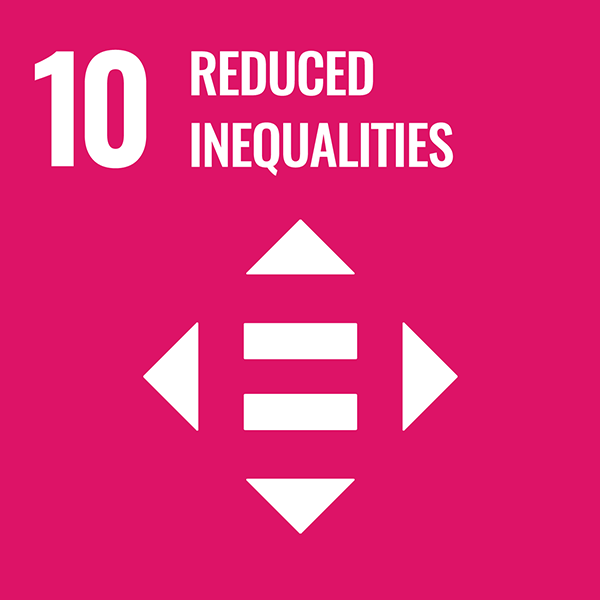 High levels of inequality are correlated with lower economic performance and social problems such as crime, both of which provide a less stable business environment. A prosperous and secure middle class generates demand for companies’ goods and services and widens the market for profits.
High levels of inequality are correlated with lower economic performance and social problems such as crime, both of which provide a less stable business environment. A prosperous and secure middle class generates demand for companies’ goods and services and widens the market for profits.
Tootal Fabrics (Holland) B.V. ensures, that all interns and employees are paid a living wage and has an equal opportunity policy for all workers without exception.
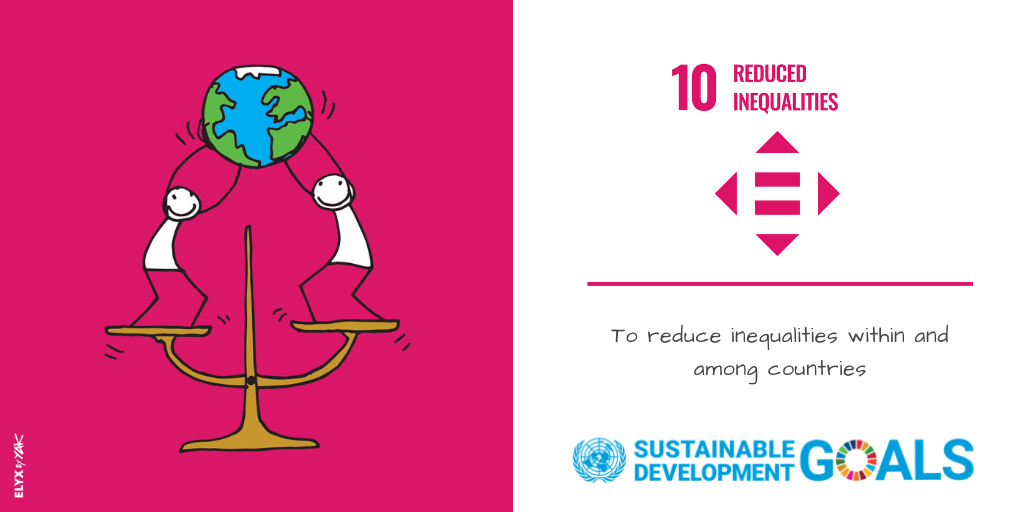
Goal 1 – No poverty: inequality is directly related to poverty, with the gap between rich and poor in society affecting the relative level of poverty of the poorest. Inequality reduces social mobility, so dampens poverty reduction efforts.
Goal 4 – Quality education: access to education is closely linked to equality of opportunity. Educational performance and therefore tertiary education access is linked closely to household income – so economic inequalities are perpetuated through generations as education and therefore earning potential is affected.
Goal 5 – Gender equality: gender discrimination underpins pervasive economic inequality between men and women. Women earn 24% less than men globally on average.
Goal 8 – Decent work and economic growth: inequality is closely related to reduced workers’ rights and increased focus on large corporations. Countries with the strongest labour union policies also have the least income inequality, as collective bargaining power tends to lead to fairer and higher wages.
Goal 17 – Partnerships for the goals: increasing the tax revenues of developing countries is a key enabler for implementing the SDGs. Companies can help by organising their business affairs to pay more taxes to host countries.
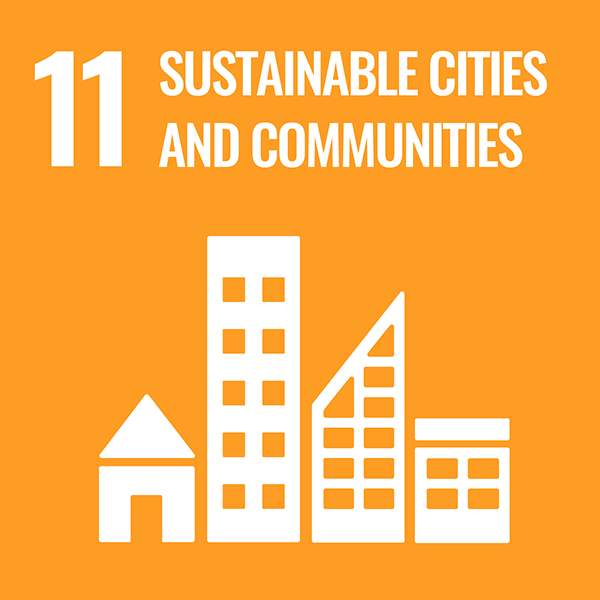 Cities are important as centres of business activity, providing companies with concentrated populations of potential customers and employees. Companies in the real estate, infrastructure and finance/ investment sectors can have the greatest impact, but the choices all companies make about their city-based operations can make a difference.
Cities are important as centres of business activity, providing companies with concentrated populations of potential customers and employees. Companies in the real estate, infrastructure and finance/ investment sectors can have the greatest impact, but the choices all companies make about their city-based operations can make a difference.
Tootal Fabrics (Holland) B.V. tries to reduce building running costs and environmental footprints of operations which can enhance corporate reputation and customer engagement, even though it is not something that customers may give credit for when selecting their suppliers.
As well as being a major source of urban air pollution and the fastest growing source of global CO2 emissions, transport accounts for a significant proportion of environmental impact. Tootal Fabrics (Holland) B.V. factors environmental costs of transport emissions and pollution by combining deliveries to different customers throughout Europa. This logistic solution enables us to offer relative low transport costs to our customers.
The fabrics Tootal Fabrics (Holland) B.V. purchases in Far East are transported to The Netherlands by sea freight and occasionally air freight. Also, train transit systems are being used from Asia to The Netherlands as well as rail and waterway from e.g. Rotterdam to our warehouse.
Tootal Fabrics (Holland) B.V. animates employees to travel active by means of commuting by bicycle. This is emission free, but also promotes good health through physical activity. General remote working is not an issue for Tootal Fabrics (Holland) B.V. due to the scale and activities of the company.
Urban resilience to climate impacts and disasters is an increasingly important risk factor for the private sector. All cities are vulnerable to damage to some extent, given their dense populations and high concentrations of buildings and valuable infrastructure. To respond on disasters and emergencies, Tootal Fabrics (Holland) B.V. has segmented key-fob accessible areas at its headquarter, installed a new very large power generator and has a clear and trained emergency protocol and several trained emergency responsive officers. An ERP backup system is in place.
Long commutes are draining and travel costs can be a large proportion of employee household expenditure. The grand majority of the staff of Tootal Fabrics (Holland) B.V. can access affordable housing and live close to work. Flexible working is offered to increase employee wellbeing and productivity.
The employee profile of Tootal Fabrics (Holland) B.V. reflects a certain diversity of the urban populations where the business is located and is open to create employment opportunities for people from a range of backgrounds/socio-demographic groups.
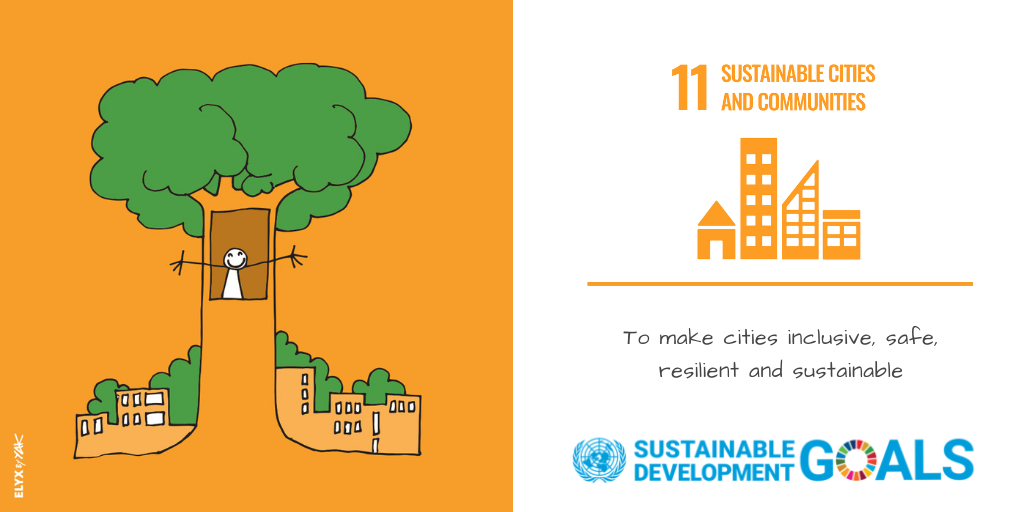
Goal 1 – No poverty: many cities have rapidly growing informal settlements, with high concentrations of extreme urban poverty. The poorest communities are also the most vulnerable to climate risks and disasters, which can push the precarious poor back into extreme poverty – hence resilient cities are a key part of ensuring that progress on poverty is maintained.
Goal 3 – Good health and well-being: reducing air pollution in cities will significantly improve human health: it is a significant causal factor in stroke, heart disease, lung cancer, and both chronic and acute respiratory diseases, including asthma.
Goal 6 – Clean water and sanitation: water and sanitation systems are a key municipal challenge in all cities, with growing populations, pollution, water availability and informal settlements all posing challenges to adequate provision of both services.
Goal 9 – Industry, innovation and infrastructure: physical infrastructure underpins effective municipal services, and effective design of buildings and infrastructure is a key part of urban resilience.
Goal 12 – Responsible consumption and production: as areas of concentrated economic activity and high population density, cities are major consumers of resources and major producers of emissions, pollution and waste. The issue of sustainable consumption and production is therefore key to ensuring sustainable cities.
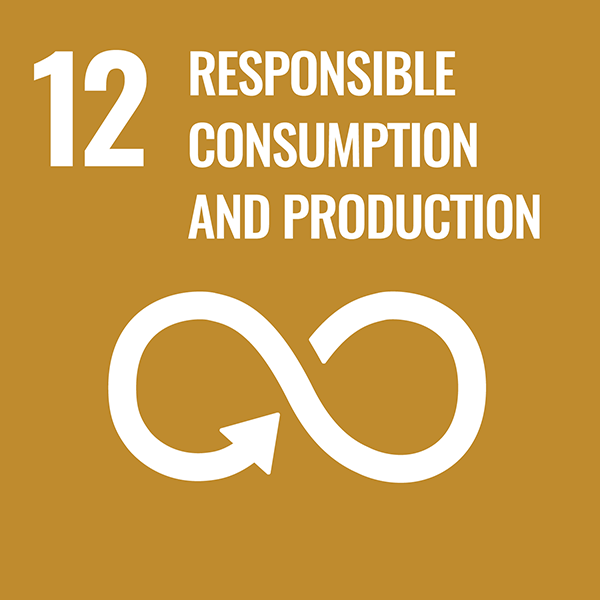 The impact of globally rising resource scarcity will require businesses to transform.
The impact of globally rising resource scarcity will require businesses to transform.
Increasing resource efficiency can help a company reduce its cost base and reduce risks associated with security of supply and price volatility, supporting sustainable growth in the medium to longer term.
Municipal waste disposal is putting enormous pressure on local governments and squeezes the funds available for spending on other services. Companies also face rising costs of disposal for the waste they generate themselves. Since Tootal Fabrics (Holland) B.V. is a wholesale company, the amount of waste at working site is relative low.
Moving towards circular economy business models and finding ways to reuse resources and regenerate natural capital is something that the private sector started work on not long time ago. It may take yet another decade to observe reduction of costs, both own and those borne by local government, for achieving a more stable and sustainable supply chain.
Poor management of hazardous chemicals at any stage in their life cycle and through the value chain from sourcing to product use and disposal, risks damage. Tootal Fabrics (Holland) B.V. has a management system in place to address environmental and health risks relating to hazardous chemicals and air, water and soil pollution and contamination in and around production facilities of its suppliers. Tootal Fabrics (Holland) B.V. considers these risks in relation to corporation, production, use and sales and disposal of its products. All products are produced and imported in line with e.g. REACH regulations.
In addition, Tootal Fabrics (Holland) B.V. is exploring value creation opportunities and already pursuing sustainability by producing and offering organic and recycled certified fabrics (GOTS, OCS and GRS). This is part of the corporate strategy.
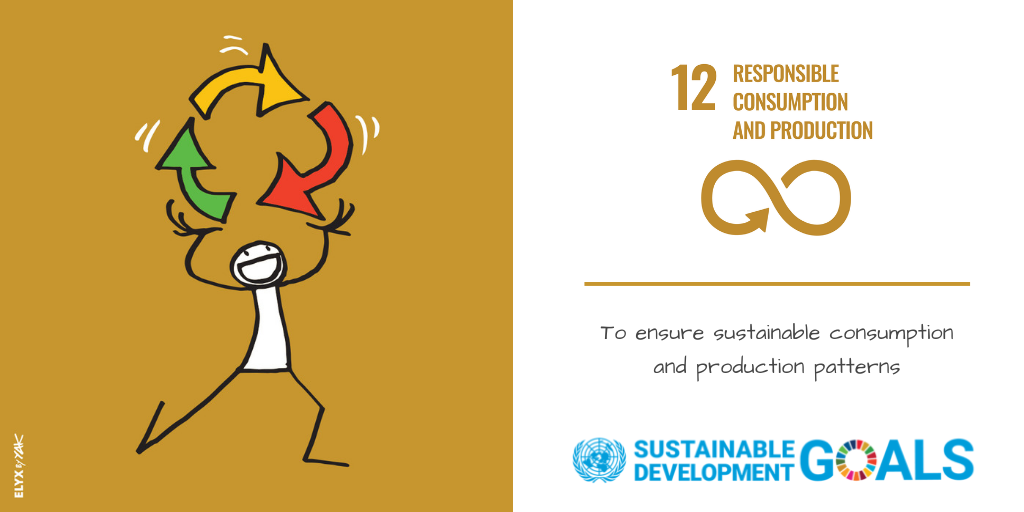
Goal 2 – Zero hunger: recovering just half of the food that is lost or wasted would be enough to feed the world.
Goal 3 – Good health and well-being: the sound management and disposal of chemicals and all wastes will minimise adverse impacts on human health.
Goal 6 – Clean water and sanitation: water efficiency will help meet water needs.
Goal 7 – Affordable and clean energy: energy efficiency is a key contributor to achieving universal access to affordable energy services.
Goal 8 – Decent work and economic growth: target 8.4 is to improve resource efficiency in consumption and production and decouple economic growth from environmental degradation.
Goal 11 – Sustainable cities and communities: effective reduction and management of municipal and other waste is critical to reducing the adverse per capita environmental impact of cities.
Goal 13 – Climate action: the integration of climate change measures into national policies, strategies and planning will impact on businesses, requiring them to be more energy efficient.
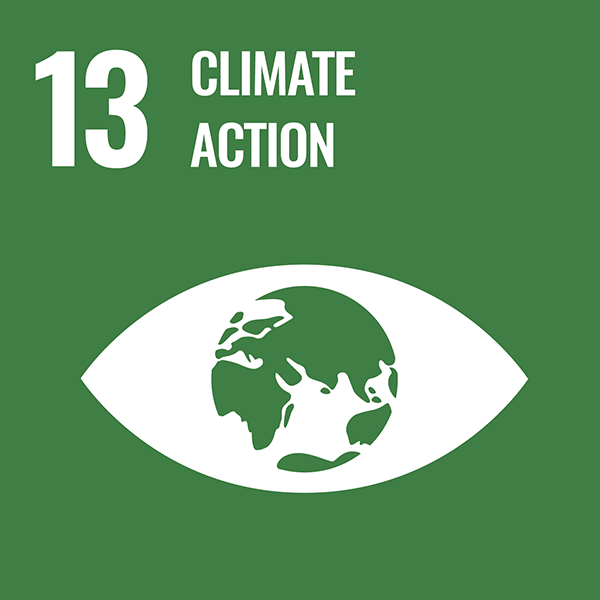 Climate change is already impacting more than a third of businesses and if unmitigated, climate impacts will continue to increase the cost of doing business.
Climate change is already impacting more than a third of businesses and if unmitigated, climate impacts will continue to increase the cost of doing business.
The increased probability and frequency of extreme events such as flood and drought can have a big impact on the private sector, disrupting operations, logistics, supply and distribution. Events may directly damage facilities or indirectly affect business via damage to the systems it relies upon such as transportation, telecommunications and power supplies.
Delays in production might be caused by power outages or a shortage in supplies; while sometimes facilities may have to be shut down altogether. Such interruptions or intermittent closures can be catastrophic for business.
Tootal Fabrics (Holland) B.V. installed a new very large power generator at the headquarter not a long time ago, with which climate risk is incorporated into its risk management procedures.
The risk management processes that Tootal Fabrics (Holland) B.V. has in place for potential future climate change impacts at current does not address the supply chain and our customers and markets. The risk assessment with respect to climate action for the supply chain will consider this in the future so that plans and measures can be in place to build supply chain resilience to shocks and disasters.
Tootal Fabrics (Holland) B.V. considers how the changes of climate might impact the needs of its customers, since the buying policy strongly builds on reacting on the needs of the markets; the product portfolio will be changed in case climate changes strongly. A sustainable collection was introduced with organic and recycled certified fabrics (GOTS, OCS and GRS). This is part of the corporate strategy. In addition, Tootal Fabrics (Holland) B.V. not only executes made-to-order, but also promotes made-to-order on demand.
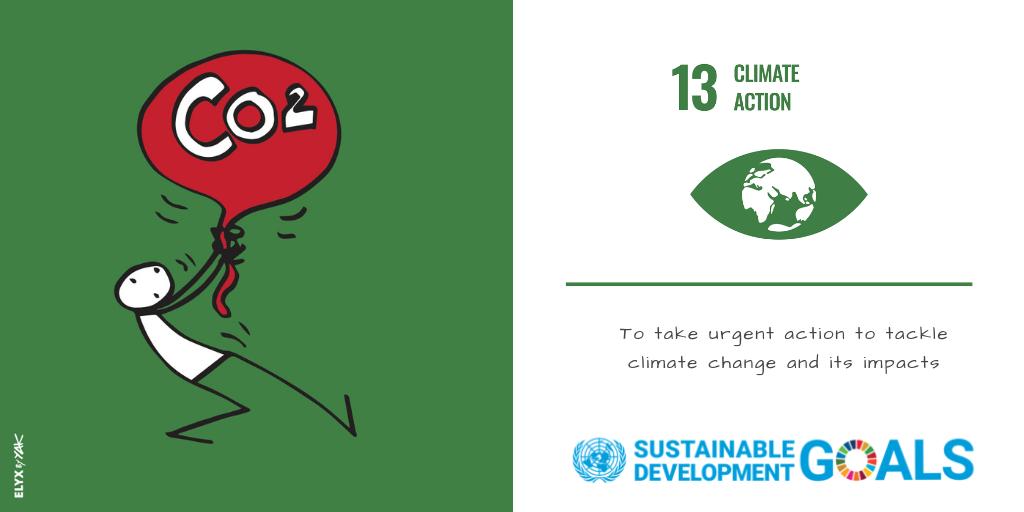
Goal 2 – Zero hunger: reduced crop yields and losses in livestock and fishery productivity will drive food insecurity, especially in vulnerable regions. Studies suggest that warming in sub-Saharan Africa could increase the proportion of the undernourished population by 25-90%.
Goal 3 – Good health and well-being: climate change will likely lead to greater spread of vector and water-borne diseases, such as malaria and cholera. This will be driven by changes in the climate, extending the areas which meet the conditions for disease to spread. Warming is projected to increase the relative risk of malaria by 5% in 2050.
Goal 6 – Clean water and sanitation: global water availability is already under pressure from population growth and uneven distribution. With projected temperature increases, the pressure on water resources is likely to grow. Declines of 20% in water availability are projected for many regions in the event of a 2°C warming and of 50% for some regions in the event of a 4°C warming.
Goal 7 – Affordable and clean energy: energy is the source of 40% of man-made emissions. Therein lies a risk and an opportunity for business. The risk is that without managing a transition to low-carbon, renewable energy technologies, our ability to limit global temperature increase to a safe level will be restricted. The opportunity is for companies to switch to newer, cleaner technologies, ultimately helping to future-proof as well as differentiate their business.
Goal 14 – Life below water: temperature increase and acidification of the oceans from climate change are expected to extensively damage coral reefs systems around the world, leading to drops in fishery production. In addition, damage to marine ecosystems from acidification could lead to disruption of food webs, loss of tourism and other human activities connected to the seas and would also have serious impacts on food security.
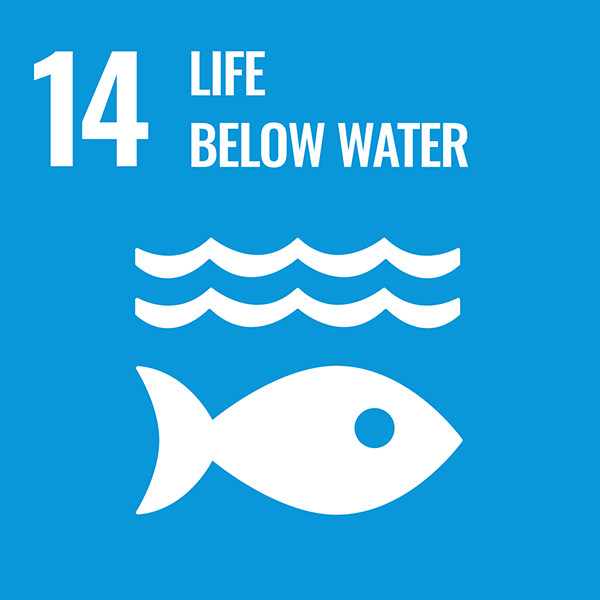 Sectors such as food, fisheries and aquaculture and tourism are particularly dependent on healthy oceans and coastal areas and have a pivotal role to play in addressing threats to the health of our oceans and coastal areas. But all sectors may suffer if natural coastal flood protection is lost or food security threatened and all can contribute to reducing marine pollution or supporting sustainable fisheries.
Sectors such as food, fisheries and aquaculture and tourism are particularly dependent on healthy oceans and coastal areas and have a pivotal role to play in addressing threats to the health of our oceans and coastal areas. But all sectors may suffer if natural coastal flood protection is lost or food security threatened and all can contribute to reducing marine pollution or supporting sustainable fisheries.
World plastic production has increased from 15 million tonnes in the sixties to 311 million tonnes in 2014 and is expected to triple by 2050, when it would account for 20% of global annual oil consumption.
Tootal Fabrics (Holland) B.V. considers to minimize plastic packaging and wrapping it uses for its business. The plastic packaging the rolls of fabrics come in though is the only packaging possible for importing and distributing. The size of the packaging can’t be reduced for rolls, but Tootal Fabrics (Holland) B.V. will think about opportunities for re-use.
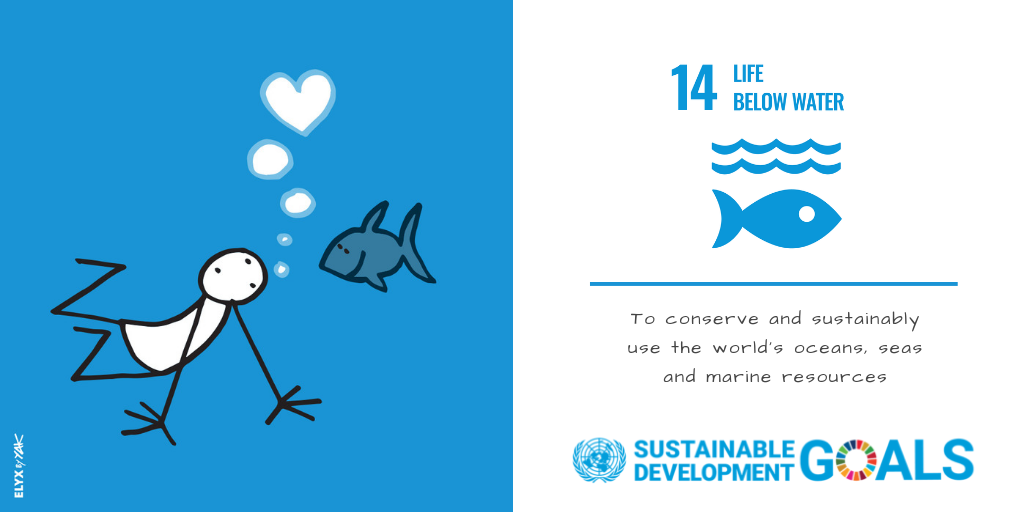
Goal 2 – Zero hunger: since fish, including shellfish, contribute 20% of animal protein for three billion people worldwide, damage to marine food resources could threaten food security.
Goal 3 – Good health and well-being: fish is an extremely nutritious source of protein and essential nutrients, especially for many poorer communities.
Goal 8 – Decent work and economic growth: employment in the fisheries and aquaculture sector has grown faster than the world’s population, providing jobs to tens of millions and supporting the livelihoods of hundreds of millions.
Goal 12 – Responsible consumption and production: reducing waste, particularly plastics, and managing its disposal effectively will help reduce marine pollution.
Goal 13 – Climate action: action to reduce CO2 emissions will decrease ocean acidification and help combat rising sea levels caused by melting ice.
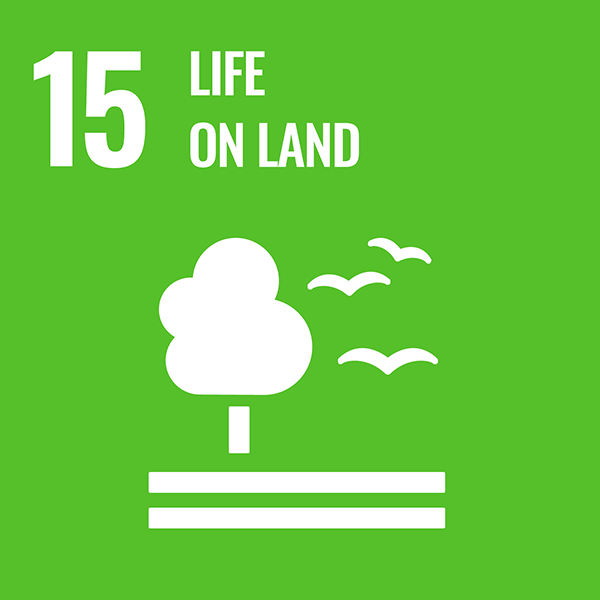 Human drivers impact severely on biodiversity, deforestation and land degradation. Environmental degradation and/or biodiversity loss can affect continuity of supply and decreasing soil fertility as well as drouth could, for example, lead to crop failure. Business therefore can play a large part in the solution, while many sectors will face risks from the loss of valuable ecosystem services.
Human drivers impact severely on biodiversity, deforestation and land degradation. Environmental degradation and/or biodiversity loss can affect continuity of supply and decreasing soil fertility as well as drouth could, for example, lead to crop failure. Business therefore can play a large part in the solution, while many sectors will face risks from the loss of valuable ecosystem services.
Mainly cotton fields are material to Tootal Fabrics (Holland) B.V.. The impact of the business and supply chain on sensitive ecosystems is being managed in such a way that the suppliers of Tootal Fabrics (Holland) B.V. source cotton from the good cotton fields in Australia and United States of America.
The business of Tootal Fabrics (Holland) B.V. assumingly does not over-exploit endangered species or encourage practices such as poaching or illegal logging.
Tootal Fabrics (Holland) B.V. already uses sustainably sourced paper for its collection cards and is in the process of becoming a FSC-member whereafter collection colour cards will carry the FSC logo. Tootal Fabrics (Holland) B.V. will determine whether products such as carton boxes for e.g. parcel transport and paper rolls on which the fabrics are rolled can be FSC certified as well.
Tootal Fabrics (Holland) B.V., not in the last place because of costs related to producing and distributing collection cards and books, promotes and encourages customers and stakeholders to use its online web shop where the comprehensive collection is digitally displayed and from where digital collection cards can be downloaded. Paper use is being reduced.
Recently Tootal Fabrics (Holland) B.V. invested in e.g. a digital colour production printer for producing collection cards, booklets and brochures based on our needs. We don’t depend on outsourcing anymore and paper and energy use is being reduced.
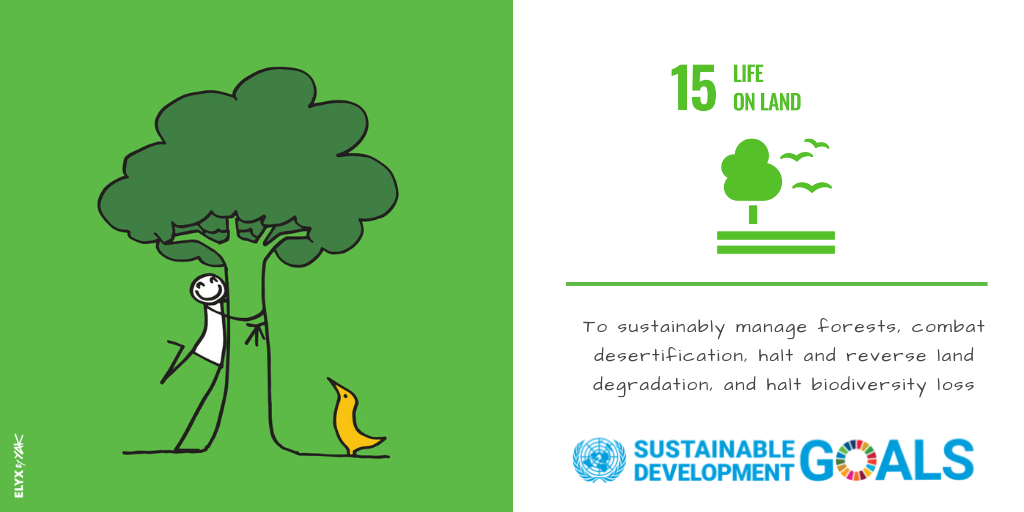
Goal 2 – Zero hunger: agriculture is a major driver of deforestation while pollution from fertilisers causes an excess of nutrients in habitats such as rivers, unbalancing the ecosystems there. Desertification is causing unprecedented loss of arable land, which disproportionately affects the poorest. Good biodiversity increases crop yield and many species are pollinators.
Goal 3 – Good health and well-being: biodiversity is also vital to human health. Half our prescription drugs originate from plants. More than two-thirds of people living in Sub-Saharan Africa use traditional herbal and plant medicines for primary health care. Terrestrial ecosystems also regulate the atmosphere, reducing the effects of pollution, which has a positive impact on public health. In addition, spending time in natural spaces significantly supports mental wellbeing.
Goal 6 – Clean water and sanitation: wetland and forest ecosystems are a key source of fresh water, with nearly a third of the largest cities globally reliant on protected habitats for clean water.
Goal 12 – Responsible consumption and production: resource efficiency and waste avoidance in materials like timber and wood pulp for paper will be key in reducing the need for virgin wood, and tackling deforestation and associated issues such as land degradation.
Goal 13 – Climate action: land use change and deforestation is a major source of global emissions, as forests and some other lands such as peatlands are crucial carbon sinks. Meanwhile climate change is projected to impact severely on biodiversity. A loss in diversity of food species increases the vulnerability of our food systems to climate change. Terrestrial habitats, if conserved carefully, can mitigate against extreme weather events.
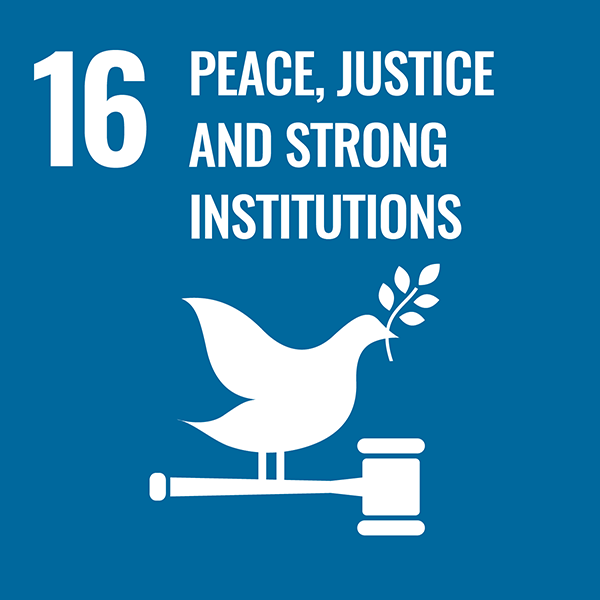 Just, peaceful and inclusive societies provide a firm foundation for business to thrive. People want to start, operate and grow their businesses with a level playing field, free from the distorting, anti-competitive effects of bribery and other forms of corruption. All companies need to play a part in creating a fair environment for business by complying with laws and regulations, improving transparency, protecting whistle- blowers and setting the highest standards of integrity amongst their workforces.
Just, peaceful and inclusive societies provide a firm foundation for business to thrive. People want to start, operate and grow their businesses with a level playing field, free from the distorting, anti-competitive effects of bribery and other forms of corruption. All companies need to play a part in creating a fair environment for business by complying with laws and regulations, improving transparency, protecting whistle- blowers and setting the highest standards of integrity amongst their workforces.
Tootal Fabrics (Holland) B.V. complies with local laws governing tax and trade practices fully and tries to keep pace with changes in laws and regulations at its best ability. Tootal Fabrics (Holland) B.V. has a corporate company code of conduct which can be received upon request and is downloadable from its website as well. Its efficacy in the supply chain is being monitored.
Tootal Fabrics (Holland) B.V. tries to work as transparent as possible and has a holistic approach. Public reporting in the future may also show social and environmental value creating, thus how Tootal Fabric (Holland) B.V. uses its resources not just to create financial, but also broader economic value.
Transparency with respect to governance, business model and strategy is promoted. Disclosure of sourcing and resource allocation though can have potential costs and put the core business at stake.
Tootal Fabrics (Holland) B.V. assessed the risks of its business from cybercrime and operates with a company owned server and data is not being made available on high risk platforms such as mobile devices and the cloud. Management and employees are aware of rising problems and try to have an effective cybercrime prevention strategy.
Tootal Fabrics (Holland) B.V. works with a supervisor board for helping to manage risks and identify opportunities. The company recognizes the advantages of stakeholder engagement contributing to building the principles of inclusiveness, transparency, accountability and responsiveness into the heart of the way Tootal Fabrics (Holland) B.V. does business.
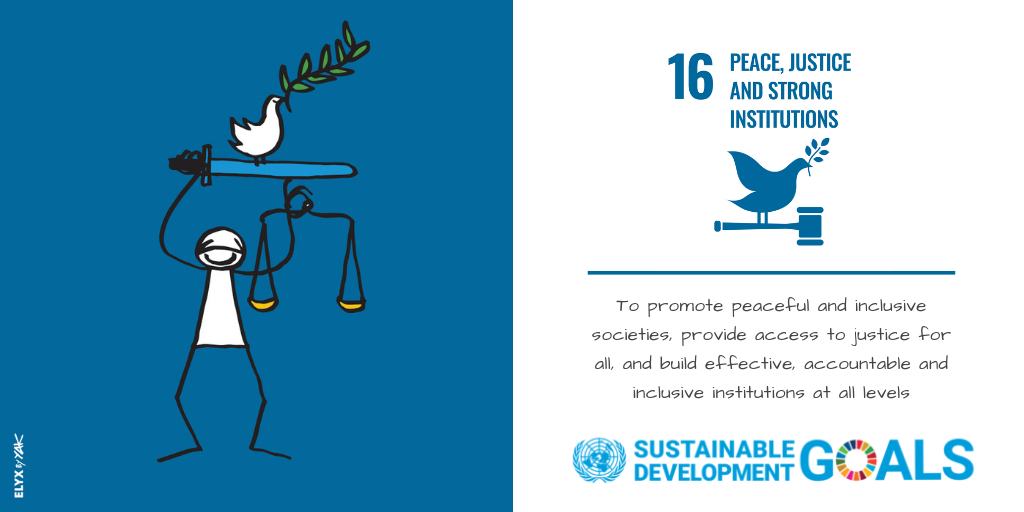
Goal 1 – No poverty: reducing poverty will require addressing fragility. The countries and economies on the OECD 2015 fragile states list are home to 43% of the world’s population living in absolute poverty. By 2030, poverty could become increasingly concentrated in fragile states: even under the best-case scenario, 62% of the global poor will be located in fragile states.
Goal 5 – Gender equality: gender equality is a foundational enabler for just, peaceful and inclusive societies. During wars or conflict, women often have fewer resources to protect themselves and, with children, frequently make up the majority of displaced and refugee populations. War tactics such as sexual violence specifically target them.
Goal 8 – Decent work and economic growth: securing decent and productive employment for men and women, in conditions of freedom, equity, security and human dignity, is a potent antidote to tensions, social divisions and unrest, instability and conflicts.
Goal 11 – Sustainable cities and communities: many cities are classified as fragile. The pace of urbanisation, income and social inequality, youth unemployment, homicidal and criminal violence, poor access to key services, and exposure to climate threats are all serious risks that make cities vulnerable.
Goal 15 – Life on land: the lack of, or non-enforcement of, environmental regulations and legislation means that precious natural resources are exploited and entire ecological systems are degraded. Conflict destroys natural capital.
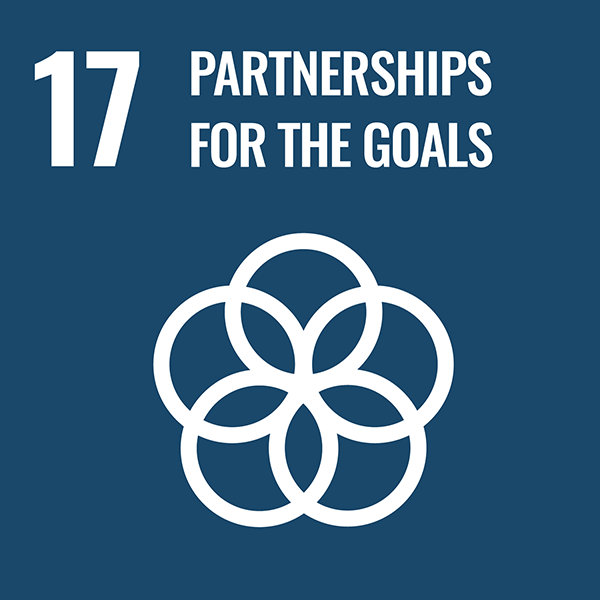 Partnerships provide opportunities for businesses to achieve more than they can alone.
Partnerships provide opportunities for businesses to achieve more than they can alone.
Capacity building helps build stronger economies (in developing countries), enhancing the commercial environment.
The complex challenges represented by the SDGs require integrated responses. Multi-sector partnerships, which pool resources and know-how of different stakeholders, are well placed to drive action. Tootal Fabrics (Holland) B.V. currently plays no role in shaping a system wide approach by contributing to an existing multi-sector partnership.
However, Tootal Fabrics (Holland) B.V. collaborates with companies in its own sector with different products and services. Besides, Tootal Fabrics (Holland) B.V. is in the process of starting new collaborations and broadening its horizon. With this, aligned with strategic objectives, resources are bundled and synergy takes places with respect to several aspects in the value chain. The latter delivers capacity building benefits to partners and corporate customers for economic growth.
The private sector is the engine that powers global trade. Capacity building towards the customers of Tootal Fabrics (Holland) B.V. involves, for example, facilitating trade credit and offering open payment terms as well as delivering quality products for inputs to their goods. All this is critical to the success of corporate global value chains.
The current limitations impinging on our existing supply and distribution capacity can be quality and service and the reduced capacities throughout the value chain including transport sector due to the current pandemic. Tootal Fabrics (Holland) B.V. tries to help suppliers who are already involved in its supply chain to build capacity to deliver good products by educating them on quality concepts and requirements. This is an ongoing process and never ends.
The barriers to participation in the value chain of Tootal Fabrics (Holland) B.V. for potential suppliers are e.g. the requirements with respect to quality and service consistency, chemical management and sustainability. When seeking for new suppliers, Tootal Fabrics (Holland) B.V. helps suppliers build capacity to participate in its value chain by close partnership -which is the essence of the DNA Tootal Fabrics (Holland) B.V.- and e.g. supply chain finance.
